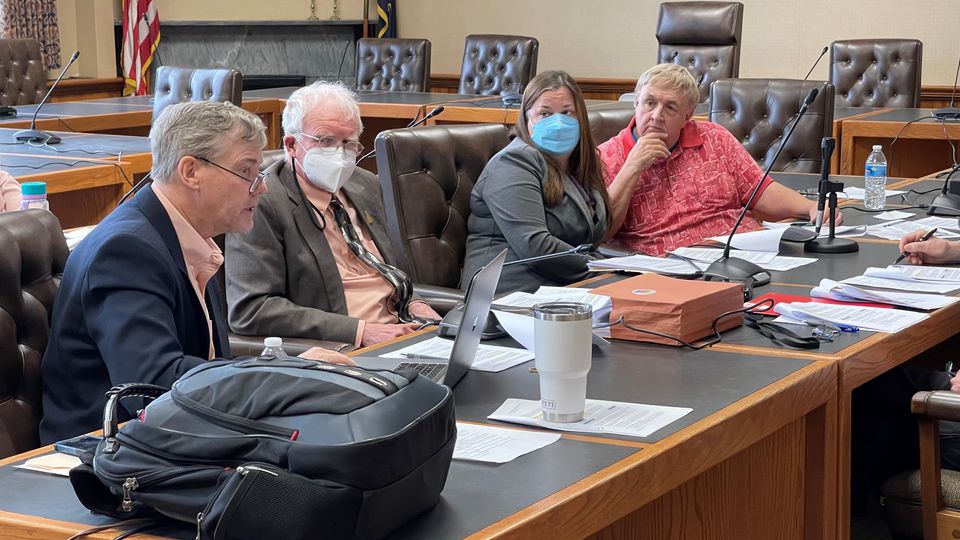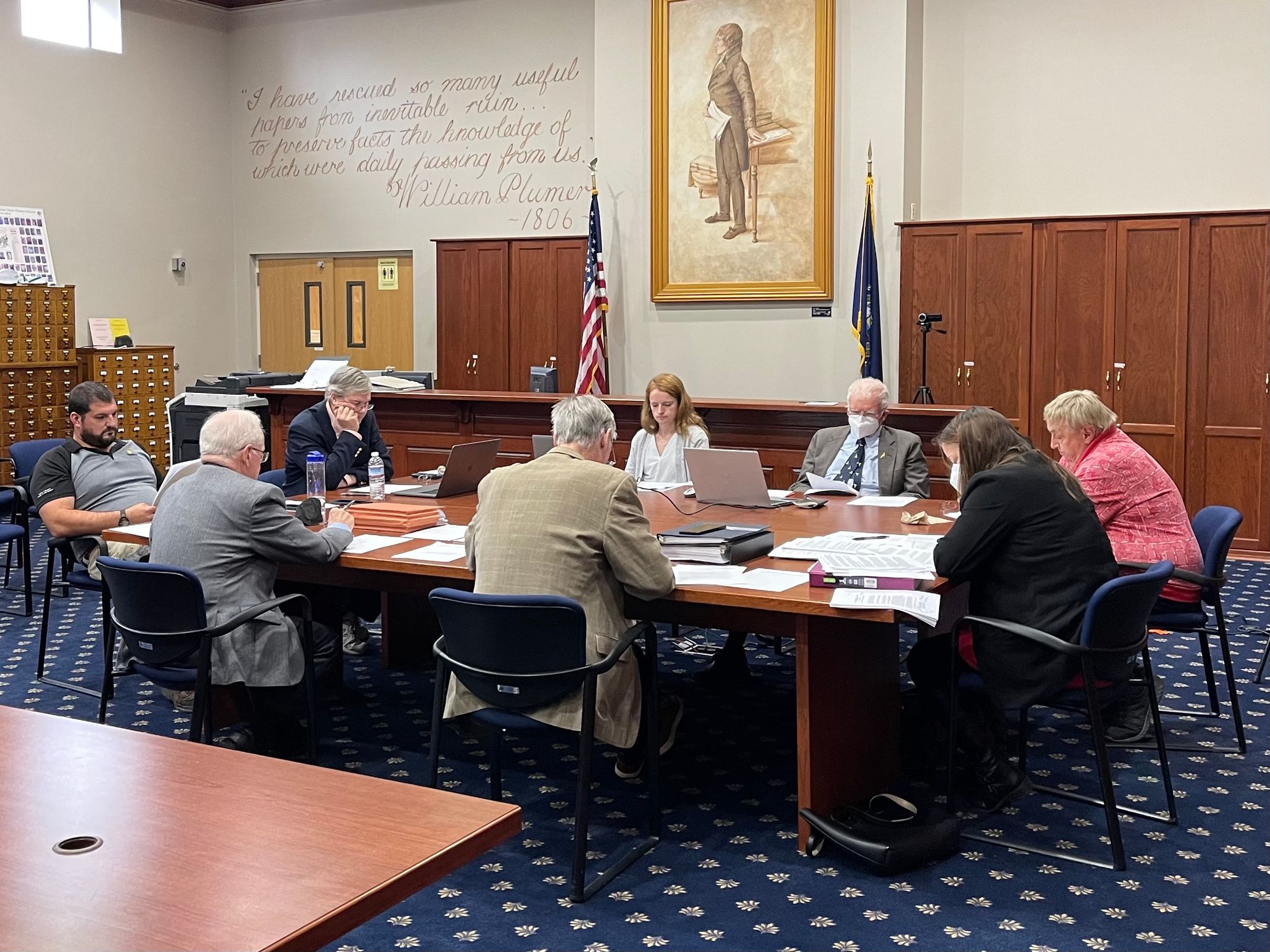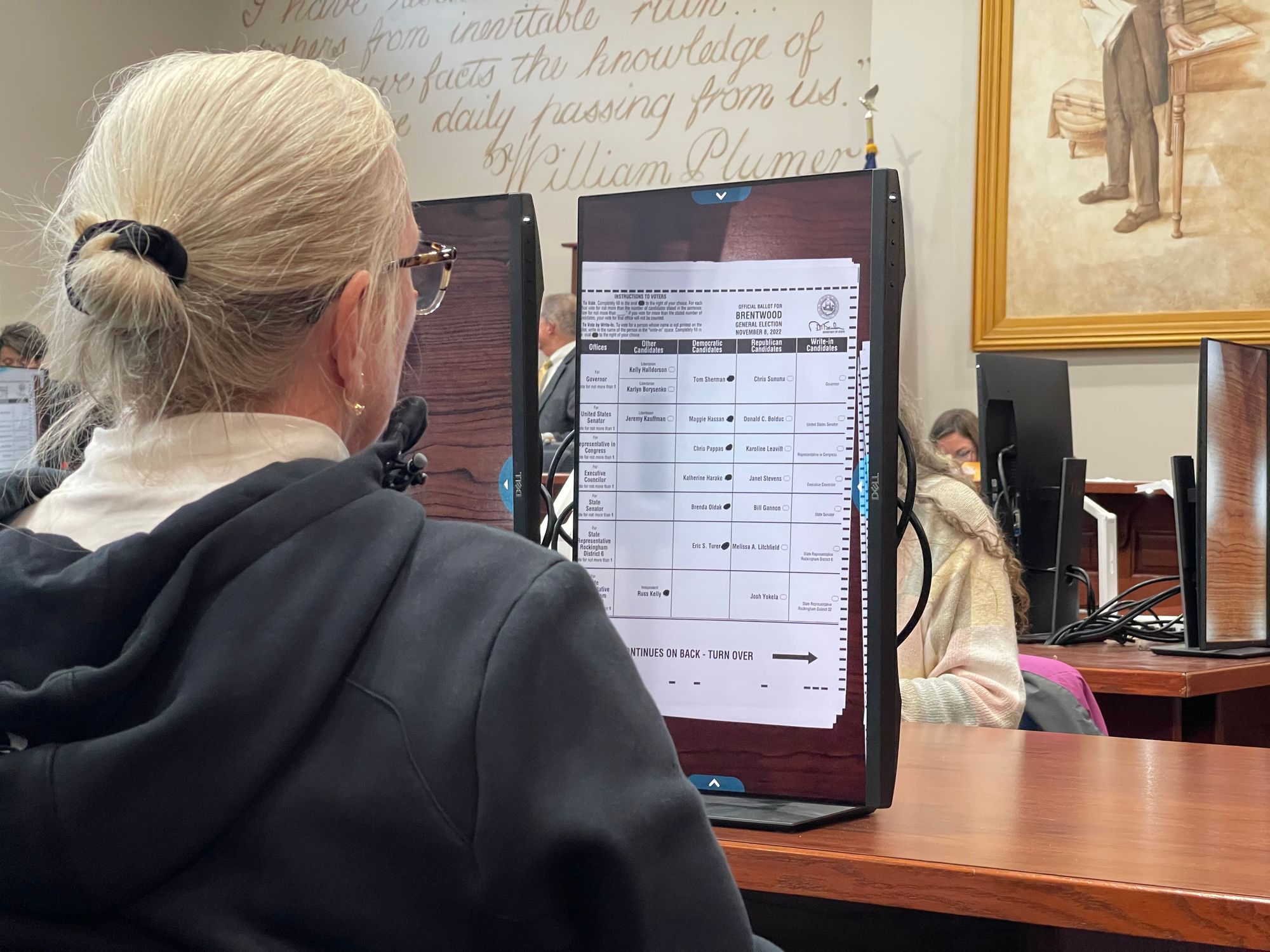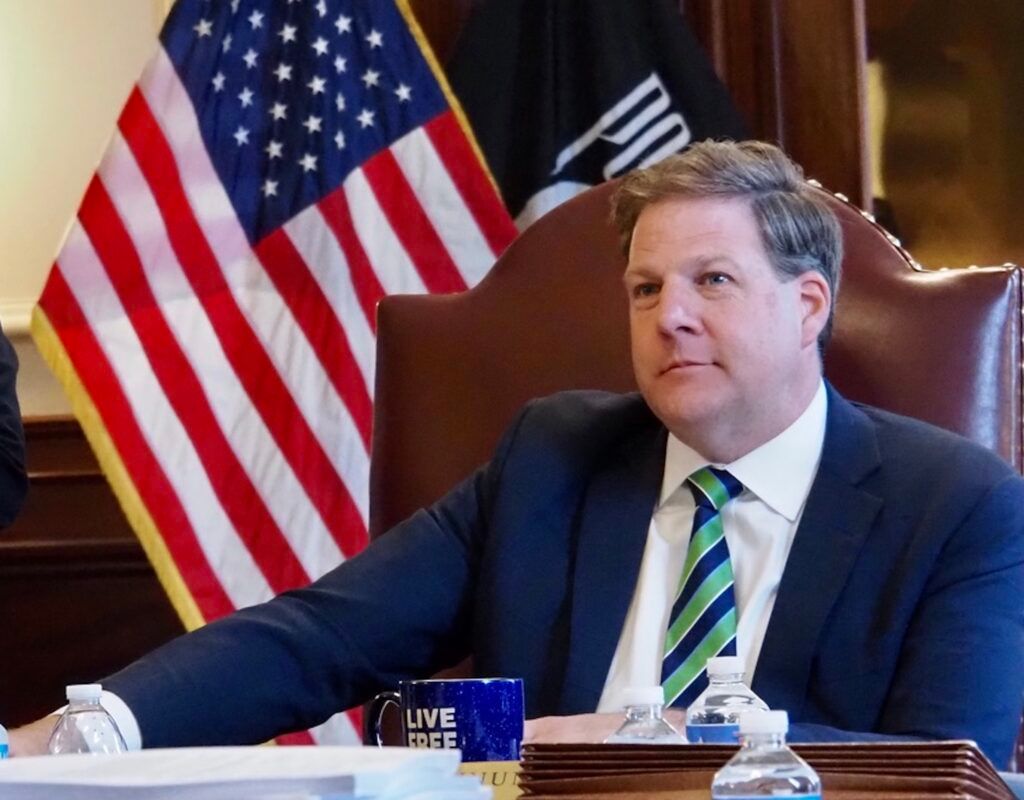Voter confidence committee still not quite on same page

CONCORD — The eight members of the Special Committee on Voter Confidence clearly agreed on at least one thing Wednesday: their final report still isn't quite finished.
Richard Swett, the committee's Democratic co-chair, had said two weeks earlier that the group could reach the finish line at this meeting. But his optimistic timetable faded as members filled their four-hour workshop with at-times zigzagging discussion that reconciled differences of opinion but also recognized a possibility that they might not reach a full consensus in the end.
A few members discussed a hypothetical scenario in which individuals might add their own comments to the report to express disagreement with decisions made by the rest of the committee, then Swett nudged the group to focus first on their plentiful points of agreement.
After the meeting, Swett said he expects the committee will unite behind their finished product.
"I'm far too much of an optimist to believe that we're going to have a minority report," he said.
Bradford Cook, the committee's Republican co-chair, said he agrees with Swett's assessment that the group is on its way to ironing out any remaining wrinkles.
The committee agreed to meet again on Thursday, Dec. 1, at 2 p.m., and Swett again predicted a light at the end of the tunnel.
"My feeling is this will be a final review," he said.
What to do with unvetted testimony?
Members quibbled Wednesday over the report's phrasing and punctuation, but they also discussed the group's overall purpose, and they debated whether reordering the report's sections may be the best way to minimize concerns about misinformation.
The final report will outline the committee's findings and recommendations, and it will also summarize more than 37 hours of testimony the committee heard from the public over the summer, which presents a challenge:
- Multiple committee members said the draft summary is an accurate recitation of testimony that included dubious election-related claims.
- Advocates have warned that giving an uncritical platform to such claims will muddle the facts and lend credence to baseless conspiracy theories.
- The committee isn't an investigatory body, so members have been debating how the report should convey the unreliable information.
At the start of Wednesday's meeting, the draft report featured the roughly four-page summary of testimony in a very prominent position within the body of the report, right after the introduction. Some members said that placement would overemphasize the unvetted testimony and overshadow the committee's findings and recommendations.

Committee member Douglass Teschner, a Republican former NH state representative, proposed moving the bulk of the testimony to the end of the report. A few paragraphs would remain up front to offer a synthesized overview, but the rest of the summary of testimony would come several pages later, after the committee's findings and recommendations.
Most members seemed to agree with Teschner's proposal. Swett began calling for a vote to formally accept the idea, but he abandoned that process midstream as members expressed strong disagreement over whether the summary should be presented as a section within the body of the document or as an appendix.
The committee spent more than an hour debating where and how the summary should be presented. The meeting wrapped up without a definitive answer. Afterward, Swett and Cook said they will put their heads together to refine the document and recirculate it to the group.
What's the worst that could happen?
Committee member James Splaine, a Democrat who previously served in the NH House and NH Senate, was one of the most vocal members warning that the report may be misunderstood or misrepresented if the committee isn't careful about how it conveys the summary of testimony.
Splaine said the committee should handle bogus election-related assertions with care, lest critics seize on this report amid the national conversation over New Hampshire's 2024 first-in-the-nation presidential primary.
"We could be blasted," he said, "if the Secretary of State's voter confidence committee had said in December of 2022 that there is any kind of legitimacy or that we give any kind of credence to the comments about fraud or inaccuracy."
Splaine, who sponsored the law that requires the NH presidential primary to be at least seven days before any similar election, said the state's quadrennial tradition will continue in 2024 regardless of whether national Democrats support it.
Others on the committee, including Ken Eyring, expressed concern that relegating the summary of testimony to an appendix could send a bad message to those who came to the committee to express their concerns.
Eyring, a Republican who cofounded the Government Integrity Project, said those who testified expressed a variety of concerns that contribute to deteriorating voter confidence, so even if a claim isn't entirely accurate, it represents an opportunity for the NH Secretary of State's Office to take steps to improve confidence.
After the meeting, Eyring said he didn't want to comment because his words have been taken out of context in the past, and people have tried to make the story about him rather than the committee's important work.
➡ Voter confidence panel divided over how to handle unfounded claims about NH elections (Jeongyoon Han for NHPR)
➡ Voter confidence report undergoes review (Kevin Landrigan for Union Leader)
➡ State voter confidence panel finds NH elections are accurate (Rick Green for Keene Sentinel)
During the meeting, Swett told the committee that he views their work as happening within a context of declining trust not only in elections but in government more broadly. Sometimes small gestures can go a long way to restore trust, he said.
"When I am able to show someone that I have heard what they have to say and that I give credence to them — not in the truth or falsity of what they're saying, but in the respect they deserve as a human being to be heard — I think that is a fundamental and important building block upon which regenerating public trust in our government begins," he said.
The committee's final report can be "an important tool" to that end, Swett said.
What the investigators are looking into
At the committee's meeting earlier this month, Cook said he forwarded a variety of information to Associate Attorney General Anne Edwards for further review.
The committee's draft report acknowledges that some allegations have been forwarded to the Attorney General's office, but it doesn't specify which allegations warranted further review and whether any additional action was taken.
NH Department of Justice spokesperson Michael Garrity confirmed Thursday that the Election Law Unit of the AG's office had received five categories of information from the committee. Here's where those items stand:
- So-called "trespass warrants" were sent to a variety of NH state officials, including Cook, Secretary of State David Scanlan and AG John Formella, accusing them of violating their duties by allowing the use of ballot-counting devices. The AG's office took no action, as the documents had no legal effect, Garrity said.
- An email made allegations about "young people dropped off by a Massachusetts SUV" at a polling site. Nothing in the email raised any new allegations, and none of the alleged conduct would violate NH election law anyway, Garrity said. The office has reviewed similar complaints in the past about cars with Massachusetts license plates at NH polling places, and the office has confirmed in those circumstances that the people who owned those cars were outside of the polls electioneering, not voting, he said.
- Questions and complaints have been raised about the use of pens, markers and pencils in polling places. The Secretary of State’s Office has said all three can be used, and there is no evidence that using either a pen or a marker interferes with the ballot counting devices, Garrity said. The AG's office has no new investigations on this subject, he said.
- The AG's office received suggestions on how to de-register voters based on property sales. That would require legislative approval, so the office has taken no further action on that suggestion, Garrity said.
- The AG's office received allegations related to absentee ballot misuse, including allegations that multiple voters were using the same mailing address, Garrity said. The office is reviewing those claims, he said.
An allegation being under review by the AG's office doesn't necessarily mean it's the subject of a formal investigation, Garrity said.
"We need to understand the allegations and preliminary facts," he said, "to determine how to most appropriately handle a complaint."


